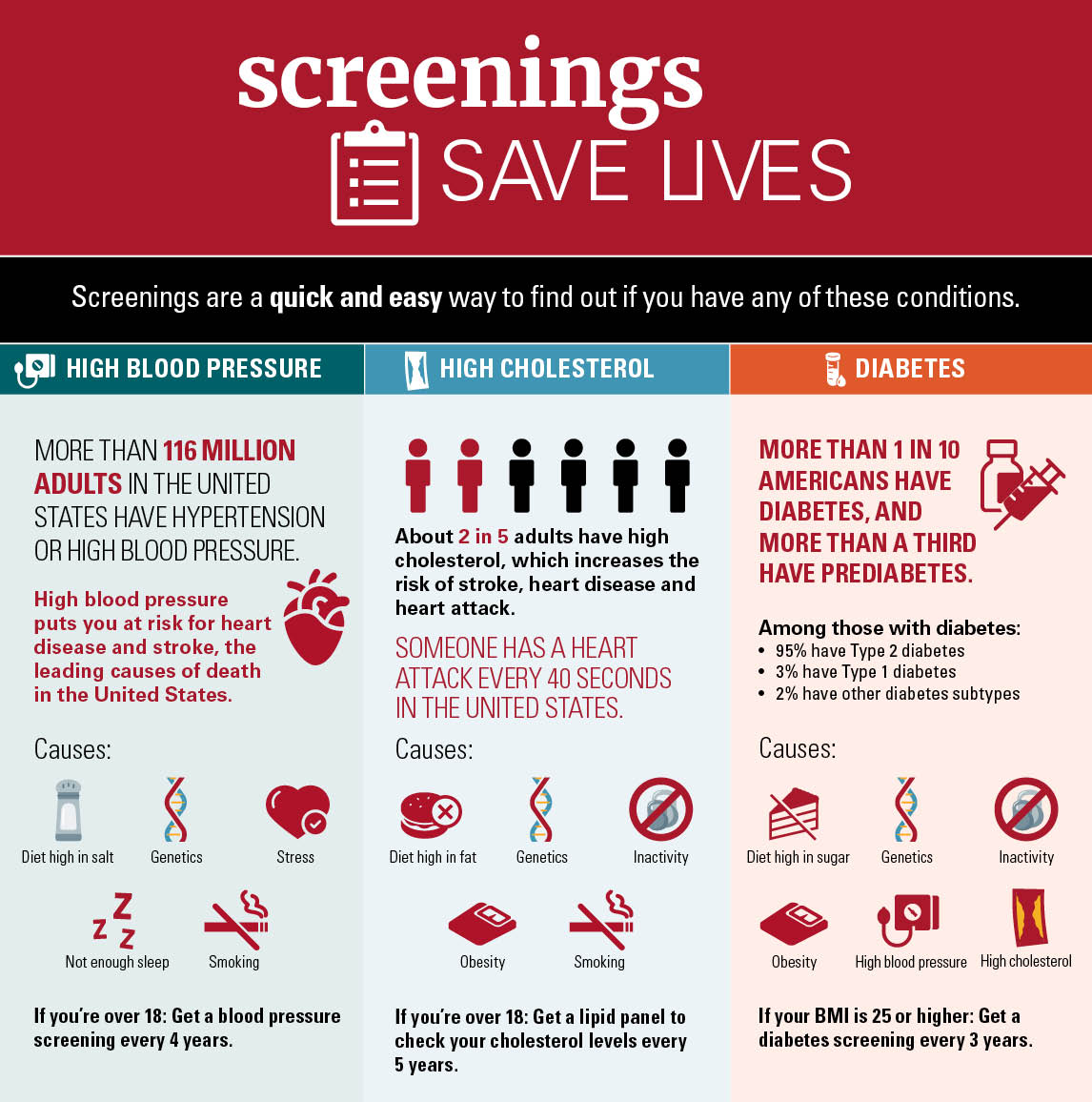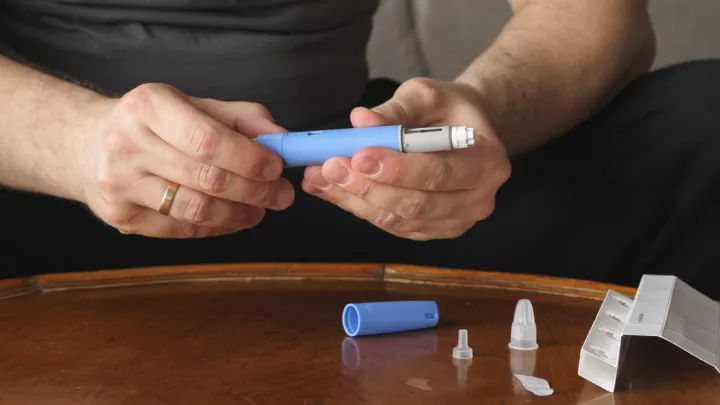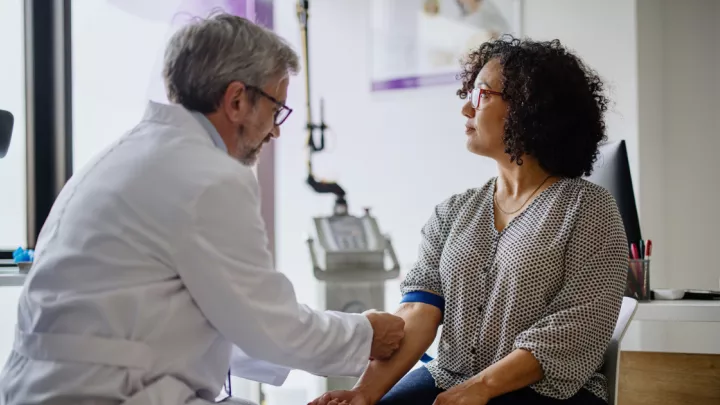3 screenings you shouldn't skip this year


Regular screenings can be difficult to keep up with when busy schedules are involved. But detecting treatable illnesses through screenings has saved countless lives. When left untreated, these illnesses can cause serious diseases or even death.
All three issues – high blood pressure, high cholesterol and diabetes – can be detected and cared for. Screenings are a quick, easy way to find out if you have any of these three conditions.

-
High blood pressure
More than 116 million Americans have high blood pressure – nearly 1 out of 2 adults.
What does it mean? Blood is moving forcefully through your body, which can damage both your heart and your arteries. High blood pressure is the number one cause of cardiovascular disease-related deaths.
If you’re over 18: Get a blood pressure screening every 2 to 5 years.
-
High cholesterol
In the U.S., 2 in 5 people have high cholesterol (total levels over 240 mg/dl). High cholesterol usually has no signs or symptoms.
High cholesterol increases your risk of:
- Heart disease
- Heart attack
- Stroke
Over 1 million Americans have a heart attack each year, which can be fatal.
What does it mean? Your body needs some fat to make cells and proteins. But too much fat clogs arteries.
If you’re over 18: Get a lipid panel to check your cholesterol levels every five years.
-
Diabetes
More than 1 in 10 Americans have diabetes. Among those with diabetes, 95% have Type 2.
Type 2 diabetes:
- Doesn’t show any symptoms in early stages
- Can stay undiagnosed for years
- Damages organs like eyes, kidneys, nerves, heart and blood vessels
What does it mean? Diabetes is basically high blood sugar. In Type 2 diabetes, your body ignores insulin, a hormone that regulates sugar levels. This causes too much sugar in the blood.
If your BMI is 25 or higher: Get a diabetes screening every three years.
Too much of something – pressure, cholesterol or sugar – in your blood causes issues. A screening can save your life!
Don’t delay screening for any of these treatable diseases. Schedule an appointment online or call 800.922.0000 today.






